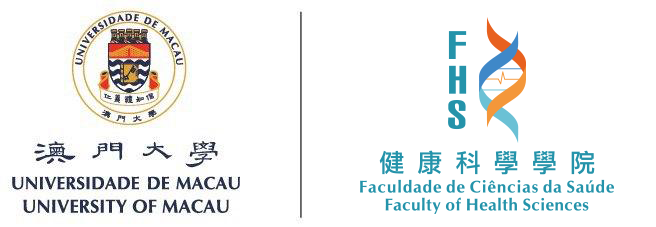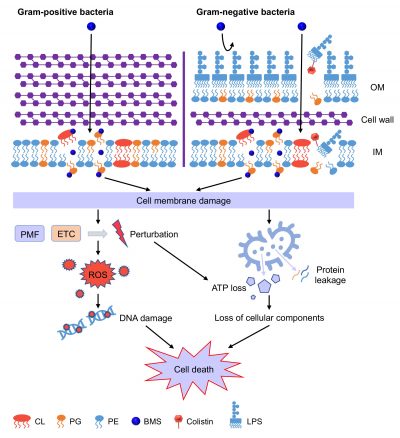A research team led by Associate Professor Leo Tsz On LEE in the Faculty of Health Sciences (FHS) of the University of Macau (UM) has made a breakthrough in treating bacterial infections. Their study has identified a new antibacterial compound that can effectively kill bacterial pathogens that are resistant to conventional antibiotic treatments. This discovery provides a new option to address the global antibiotic resistance crisis. The research has been compiled and published in the renowned international academic journal “International Journal of Antimicrobial Agents”
Bacterial infections have historically been a major threat to human health. The deadliest pandemic in human history, known as the “Black Death,” erupted in medieval Europe, resulting in approximately 200 million deaths worldwide. In the past, even a minor bacterial infection in a wound could be life-threatening due to the lack of effective treatment methods. With the advent of antibiotics, this dark period saw a ray of hope. Antibiotics enabled us to effectively treat wound infections and respiratory tract infections, as well as perform various surgeries in safety. However, with the widespread use of antibiotics, bacteria have gradually evolved the ability to evade antibiotic killing, leading to antibiotic resistance. As more and more bacteria are discovered to resist multiple or even all clinically available antibiotics, we seem to be facing another dark period similar to the pre-antibiotic era. Therefore, the development of new antibacterial drugs has become imminent to address the growing problem of antibiotic resistance.
To quickly identify new drugs that can effectively combat antibiotic-resistant bacteria, the research team screened a commercial compound library. Most of the compounds in this library are already approved for the treatment of non-bacterial infections. Reutilising these approved drugs to treat antibiotic resistant bacterial infections not only significantly reduces the time required for new drug development, but also avoids potential unknown side effects and fully explores the clinical value of these drugs. After a series of screenings, the research team discovered a compound called BMS. This compound not only directly kills antibiotic-resistant bacteria, but also enhances the therapeutic effects of the clinical antibiotic colistin. The results have shown that this compound exhibits good therapeutic effects against many antibiotic-resistant clinical bacteria, including multidrug-resistant strains. Furthermore, the research team also explored the target and mechanism of action of the BMS compound. It was found that the compound primarily targets the phospholipids on the bacterial cell membrane, exerting its antibacterial effects through the disruption of the bacterial cell membrane and the induction of metabolic disruption in bacteria. This research work provides new insights for the treatment of antibiotic-resistant bacterial infections and the development of novel antibacterial drugs to combat the antibiotic resistance crisis.
Associate Professor Jun ZHENG. PhD student Nian ZHANG is the first author. Important contributions to this research were also made by Ph.D. students Wenyin SHAN, Liangliang GAO, and Si Hoi KOU from FHS, as well as technicians from Peking University Shenzhen Hospital, Professor Bo PENG from Sun Yat-sen University, and FHS Associate Professor Kin Yip TAM. This research was supported by the Science and Technology Development Fund, Macao SAR (File no. 0016/2020/A1) and UM (File no. MYRG2020-00226-FHS and MYRG2022-00240-FHS).
Detailed information on the research article can be found at: https://pubmed.ncbi.nlm.nih.gov/37328075/.





